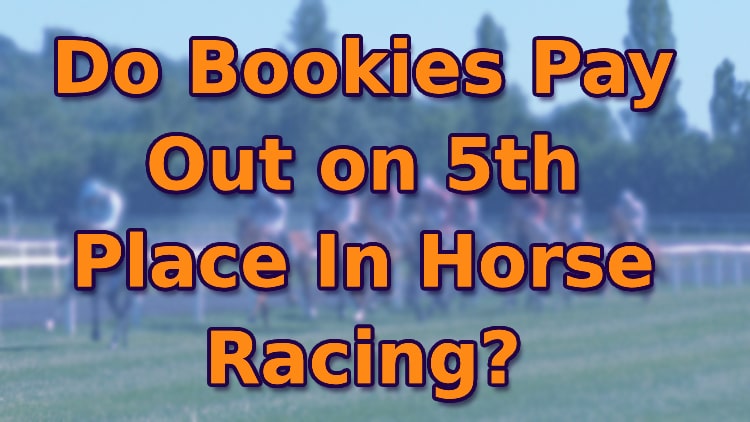
In the thrilling world of horse racing, the question often arises - do bookies pay out on 5th place? While the answer can vary depending on the bookmaker and the specific race, the answer is generally yes - some bookmakers do indeed pay out on 5th place.
How Many Places Do Bookies Pay Out On?
In the traditional model of betting 'to place' on horse racing, the payout structure typically revolves around the standard places - usually the first, second, and third horses. However, as the dynamics of horse racing evolve, so too do the betting structures.
In a bid to outdo each other and attract more punters, bookmakers often extend their generosity by offering extra places. This means that in addition to the standard first, second, and third places, some bookmakers may also pay out on the 4th or even 5th place.
However, it's important to note that the number of places paid out can vary and isn't always fixed at 5th place.
Do Bookies Pay Out For 5th Place?
The concept of paying out for extra places, such as the 5th place, can seem like a surprising twist in the betting world. Some bookies, eager to lure in punters with the promise of more chances to win, do indeed pay out for 5th place.
The potential to win even if your horse doesn't finish in the top three can be a significant draw for punters, providing an additional thrill and an increased chance of making a return on their bet.
How Do Extra Place Offers Work?
The notion of a 5th place payout forms part of what is known as 'extra place offers'. These are essentially a strategic move by bookmakers to stand out in a crowded market. By offering payouts beyond the conventional places (1st, 2d and 3rd), they create a unique selling point that resonates with punters seeking enhanced value for their bets.
But make no mistake - there's a method to this apparent madness. The extra place offers are not just about generosity; they're about attracting more customers to potentially have more bets placed with them.
Playing 5 Places Instead of 3 Explained
So, what does it mean when bookies decide to pay 5 places instead of the standard 3? Essentially, it translates into a broader spectrum of winning possibilities.
In the context of a major race like the Grand National, it means that you're not just cheering for your horse to be the ultimate champion. Your horse could also finish 4th or even 5th, and you would still receive a payout on your bet.
Imagine the thrill of realising that your horse, though not the overall winner, has still secured a place in the top 5 - meaning your bet has still won and you receive a payout.
How Many Places Are Paid Out In The Grand National?
When it comes to the Grand National - the pinnacle of horse racing in the UK - the payout dynamics can be even more exciting. Some bookies might stick to the conventional places, paying out on the first three finishing horses. Others, however, might elevate the stakes, generously extending their payouts to the 4th, 5th, or even 6th place.
It's a dynamic landscape where the rules of engagement can vary, injecting an element of surprise into the betting equation.
It's important to read through the rules, terms and conditions of the bookmaker before placing a bet with them so you know what you are signing up for and what to expect.
Conclusion
In the realm of horse racing and its betting intricacies, the question of whether bookies pay out on 5th place unravels a fascinating tapestry of possibilities. Some bookies do, indeed, embrace the idea, turning the traditional payout structure on its head in an effort to attract more punters to betting with them.
So, if you're contemplating your bets for the next big race, keep your eyes peeled for those bookies who dare to defy convention and pay out on 5th place. It provides additional chances for your bet to come in compared with traditional 'to place' bets, which only cover the top 3 spots.
As always, please gamble responsibly and read through the terms and conditions before placing any wagers.
